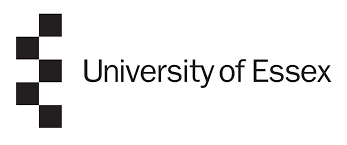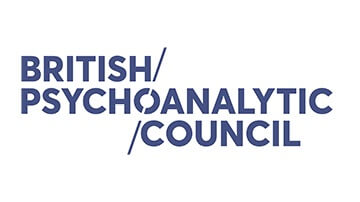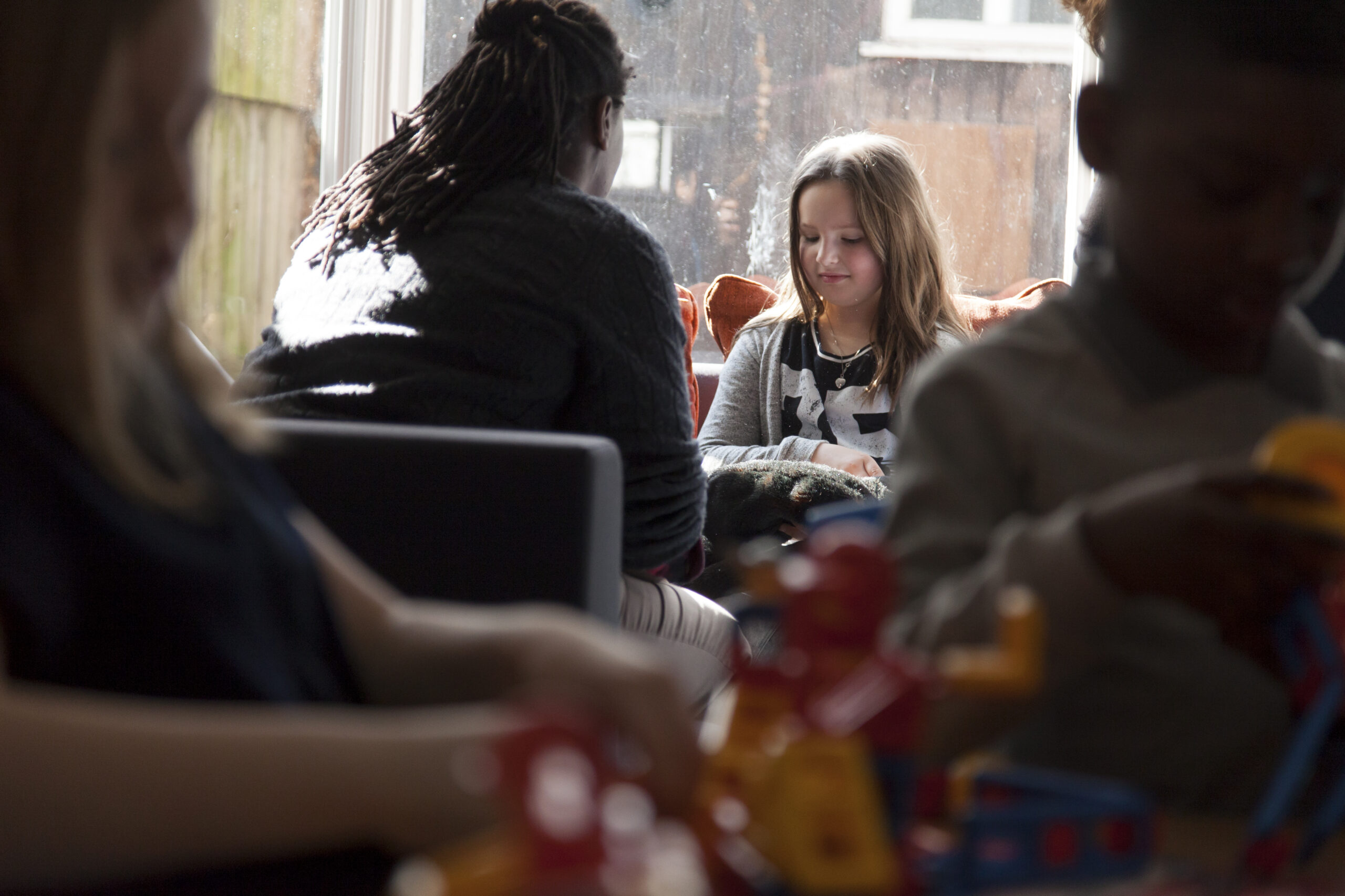
Psychological Therapies with Children, Young People and Families (M34)
Join us and become a capable and skilled child, adolescent and family mental health practitioner
About this course
You will train to offer therapy based on psychodynamic and systemic approaches, as well as other evidence-based treatments, such as mindfulness.
Year one
In the first year you will:
- study theory on assessment and engaging in therapeutic work
- attend specialist workshops on difference, identity and diversity
- partake in small supervision groups
- learn how to approach research
- have fortnightly individual supervision
- attend evidence-based practice seminars, including on mindfulness
- be in a work placement where you have the opportunity to see children, adolescents and families for clinical work using a psychodynamic framework, including individual psychotherapy
Year two
In the second year you will:
- study theory on the psychodynamic therapeutic approach
- attend evidence-based practice seminars on systemic approaches
- attend specialist workshops on working in schools or adolescence
- partake in small supervision groups
- have fortnightly individual supervision
- carry out therapy in your placement
To be qualified as a psychodynamic psychotherapist, you will need to complete the full two years of the academic programme including all required clinical work.
If sufficient clinical work has not been completed during this time to reach BPC accreditation standards, this can often take at least one additional year.
Although this is a two-year Master’s programme, students may exit after one year with a Postgraduate Diploma (PgDip).
Modules
Module 1: Engaging Clients in Psychotherapy
- Year one
- FHEQ level 7
- 20 credits
- Core module
- Module lead: Khuzuma Akhtar
Module aims
The aims of the module are to:
- develop the assessment and engagement skills needed to work therapeutically in Child and Adolescent Mental Health Services (CAMHS), educational institutions and other voluntary and public sector services which provide therapeutic interventions for children, adolescents and families
- use current evidence, assessment and diagnostic criteria to develop hypotheses and make sense of a client’s presenting issues
- make formal assessments, case formulations, and to develop treatment plans with associated care packages
- recognise how cultural, ethnic, social class and ecological factors affect presentation and engagement in therapeutic work
- explore the psychodynamic theoretical framework, as well as the history of the development of this treatment approach, and exposure to relevant psychodynamic literature
- explore working with parents within a psychodynamic framework
- explore an evidence based approach, Mindfulness, at an introductory level
Module assessment
You are required to submit a 4,000 word assignment based on one or two of their clinical cases. You are also clinically assessed by your supervisors.
Module 2: Developing Skills in Specialist Areas of Child and Adolescent Mental Health Practice
- Year one
- FHEQ level 7
- 20 credits
- Compulsory module
- Module lead: Gisele Caseiras
Module aims
The aims of the module are to:
- develop your knowledge, capabilities and skills in a selected area of clinical interest through active participation in a clinical workshop that will run during the course of the academic year
- provide opportunities to present cases, apply theory, discuss papers, extend their knowledge and skills, and develop models of best practice and research interests
- provide you with clinical supervision by clinicians experienced in the particular area of study, offering further opportunities for presenting and developing clinical expertise
- enable an analysis of your therapeutic work discussing with peers and supervisors, allowing an integration of theory and practice and an exploration of the complexity of the work
Module assessment
You are required to present a 4,000 word clinical paper/critical case study of a case from within this area of study informed by relevant clinical and research evidence.
Module 3: Research for Clinical Practice: Understanding, Appreciation and Application of Research for Use in Clinical Work
- Year one
- FHEQ level 7
- 20 credits
- Compulsory module
- Module lead: Kairo Maynard
Module aims
The aims of the module are to:
- develop your understanding of research processes as applied in child and adolescent mental health treatment and care
- develop an appreciation of the key methodological and ethical considerations in designing research which aims to address clinical problems
- enable the acquisition of critical skills to understand, appraise and evaluate quantitative and qualitative studies in this field
- enable the acquisition of core research skills such as electronic literature searching
- develop an understanding of the principles underlying qualitative and quantitative research paradigms; designs, methods and forms of analyses
- develop an understanding of research findings and evidence in relation to therapeutic alliance and curative factors as they pertain to different psychological therapies
Module assessment
You are required to submit a 4,000 word critical evaluative literature review.
Module 4: Therapeutic Skills
- Year two
- FHEQ level 7
- 30 credits
- Core module
- Module lead: Khuzuma Akhtar
Module aims
- continue to develop an in-depth understanding of psychoanalytic thinking and approaches to work with children, young people and families
- deliver training in at least two evidence-based interventions, developing specialist skills and capabilities in a specific treatment modality, as well as the confidence and informed authority to be able to deliver this where appropriate
Module assessment
You are required to submit a 5,000 word clinical paper. You will also be assessed through your supervisor’s clinical assessment report.
Module 5: Developing and Enhancing Skills in Specialist Areas of Child and Adolescent Mental Health Practice
- Year two
- FHEQ level 7
- 30 credits
- Compulsory module
- Module lead: Shira Jacobs
Module aims
The aims of the module are to:
- develop further specialist knowledge, capabilities and skills in a selected area of interest, through active participation in specialist clinical workshops
- focus on an interest in the complexities of therapeutic interventions with a particular targeted client group or setting
- provide opportunities to present cases, apply theory, discuss papers, extend your knowledge and skills, and develop models of best practice and research interests
- provide you with clinical supervision by clinicians experienced in the particular specialist area, offering further opportunities for presenting and developing specialist clinical expertise
- enable detailed analysis of your therapeutic work through discussion with peers and supervisors, allowing an integration of theory and practice and an exploration of the complexity of the work, in the context of their workshop experience and in the context of psychodynamic, systemic and specific modality theoretical insights
- build upon, enhance and consolidate existing therapeutic knowledge, skills and capabilities
Module assessment
You are required to submit a 6,000 word “mini dissertation” and a 1,500 word self-reflective piece, discussing your professional journey during the course.
Who is this course for?
This course is for you if you are working in a voluntary or statutory sector setting with children and families. For example, you may be a:
- counsellor
- social worker
- teacher
- psychotherapist
- creative arts therapist
- child and adolescent primary mental health care worker
- child and adolescent mental health services (CAMHS) practitioner
- occupational therapist
- nurse
This course may also be for you if you have completed one of our pre-clinical courses but, while it will stand you in good stead, the completion of an introductory or pre-clinical course is not a guarantee of gaining a place on the next course in the pathway.
All clinical courses require an interview and our tutors ensure they thoroughly assess an applicant’s professional and personal suitability for both taking on further training and offering therapy to others.
Many people are successful in progressing on to their chosen course but it is important to note that acceptance on to one of our courses encompasses much more than fulfilling academic requirements.
Course details
To undertake this course, you need to:
- have successfully completed our Child, Adolescent and Family Mental Wellbeing: Multidisciplinary Practice PgCert, or
- have successfully completed Perinatal, Child, Adolescent and Family Work: a Psychoanalytic Observational Approach to the minimum of Postgraduate Certificate level, providing you have achieved 60 credits which include an assessed observational module i.e. 20 hours of infant observations or completion of a recognised, assessed and accredited module of systemic family observations, or completion of a recognised assessed module of institutional observations
- hold an undergraduate degree, degree equivalent or evidence of other relevant post-registration education/experience
- hold an appropriate professional qualification relevant to your chosen career or can demonstrate that you have a significant level of knowledge and experience in a dedicated field working with children, adolescents and families
- have a minimum three years’ experience of working with children, young people or families where you had a remit to address their behavioural, emotional or psychological difficulties
- be in a full-time or part-time post (paid or voluntary) in which you are working with children and/or families and where you can provide individual therapy with children and adolescents by the time the course starts
- are in personal therapy for a minimum of one session per week with a BPC accredited psychoanalytic psychotherapist or psychoanalyst by the time the course starts
If you are invited to interview, you will be asked to demonstrate how you meet our professional suitability and clinical eligibility criteria.
Not completed one of our pathway courses?
Applicants must demonstrate that their prior learning and experience is equivalent to the content and learning outcomes of Child, Adolescent and Family Mental Wellbeing: Multidisciplinary Practice PgCert. In particular, this must include an observational module as detailed above and participation in work discussion groups, along with 60 credits at Level 7 (PgCert).
This must be detailed within the application and will be further explored during any subsequent interviews. If you are unsure about whether your prior learning/experience is equivalent to the above course, please contact us to discuss.
Tuition fees
Home (2026/27)
£7,830 per year
International (2026/27)
£15,660 per year
Annual fee increases
Tuition fees are charged for each year of your course. If your course is longer than one year, the fees may be subject to annual inflationary increases. For more information on tuition fee changes, including paying for tuition fees, please refer to our tuition fee guidance.
Funding
Student loans
If you are studying a Master’s or Doctoral level course, you may be eligible for a postgraduate loan from the UK government. Please check our student loans guidance for eligible courses and criteria.
Funding for current students
We offer several funding options to support current students who need financial assistance during their studies. Please refer to our financial support guidance for more information.
Assessment
You will be assessed on the basis of five written submissions over the two year Master’s. The development of your clinical understanding and skills will be assessed in individual and small group supervision and in workshop settings.
Attendance
Wednesdays from 9am to 5.30pm or 10am to 6.30pm, plus time allowed for clinical placements and weekly personal psychotherapy.
Please note that we require students who have not undertaken our Child, Adolescent and Family Mental Wellbeing: Multidisciplinary Practice PgCert to take part in a Group Relations Conference during their studies.
Graduates from this course have gone on to work in school settings, voluntary sector psychotherapy services and private work, often with colleagues, as part of a co operative or individually.
Graduates with a core training have also been employed in NHS settings within CAMHS and infant mental health teams.
Application support and deadlines
If you have questions about our postgraduate courses, admissions process, or the specifics of your application, you can book a one-to-one online meeting with a member of our admissions team.
There are a number of important application deadlines associated with our postgraduate courses, however we encourage you to apply as early as possible, as spaces on our courses are limited and can be competitive.
Applications to join the September 2026 cohort of this course are expected to close on Tuesday 30 June 2026.
Why study with us?
This course has been developed by a multi-disciplinary group of clinicians and the course design is evidentially based, theoretically sound and committed to the development of clinical skills through practice opportunities and in-depth supervision.
It will enable you to become a capable and skilled child, adolescent and family mental health practitioner with training informed by a range of evidence-based psychological therapies for use in child, adolescent and family mental health work.
This course will equip you academically and professionally for a role that has become increasingly needed in the public sector child and adolescent workforce, child and adolescent mental health service sector, schools and other settings.
Testimonials
Course facilitators
Validations and accreditations
This course is validated by the University of Essex.
This course has been accredited by the British Psychoanalytic Council (BPC).
Apply now
Start your application for the September 2026 cohort of this course.
Please note: you may see the M34 course also referred to as PTMATP001 in communications from our application system.
Recommended courses
Explore courses to study beforehand
-
 Postgraduate certificate
Postgraduate certificate 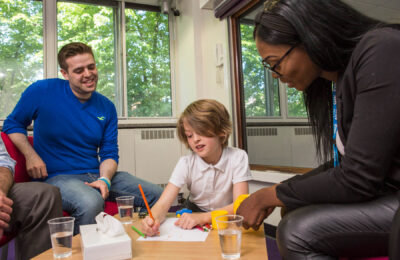
Child, Adolescent and Family Mental Wellbeing: Multidisciplinary Practice (ED24, online)
Explore courses to study next
-
 Professional doctorate
Professional doctorate 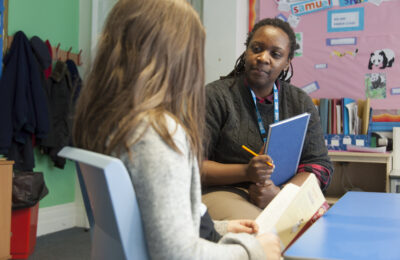
Child and Adolescent Psychoanalytic Psychotherapy DPsych (M80)
